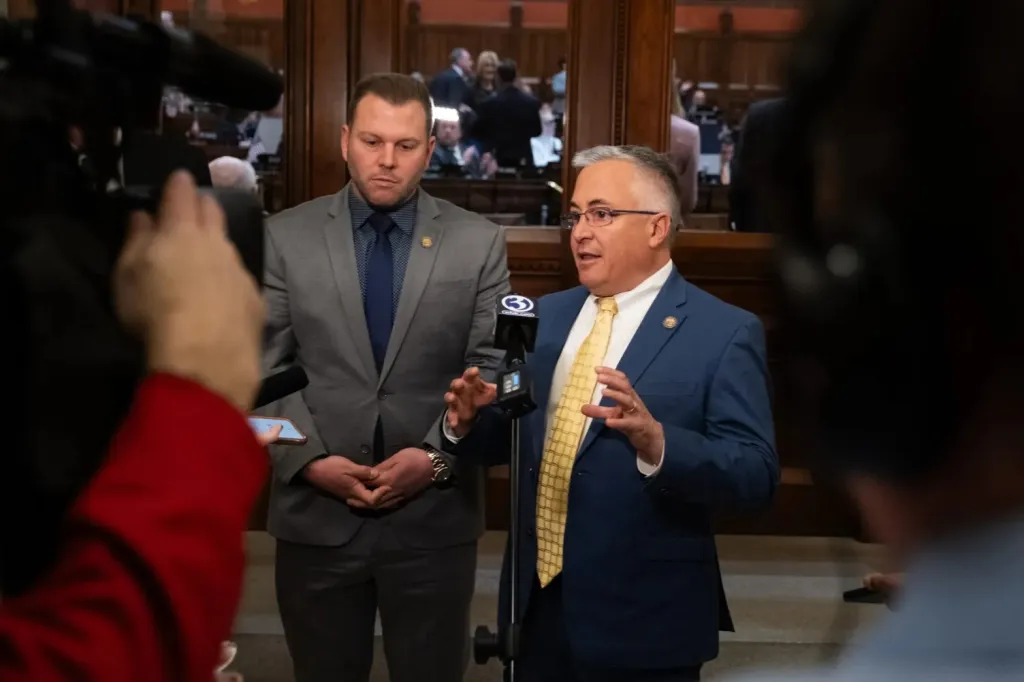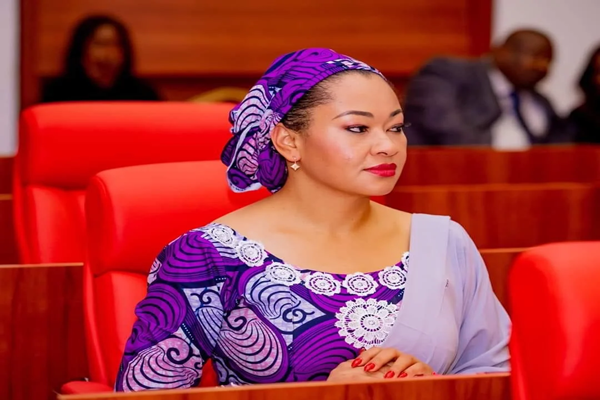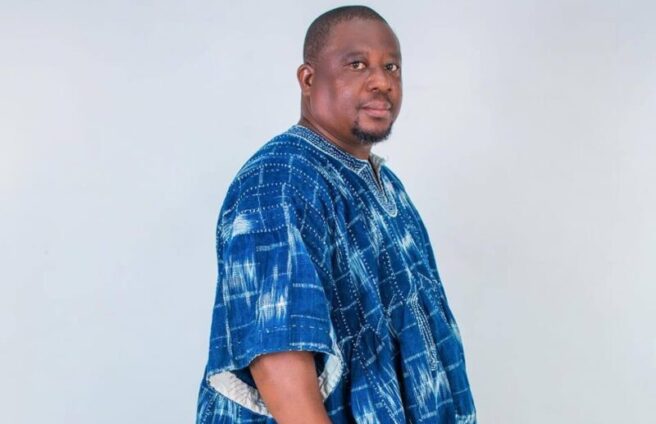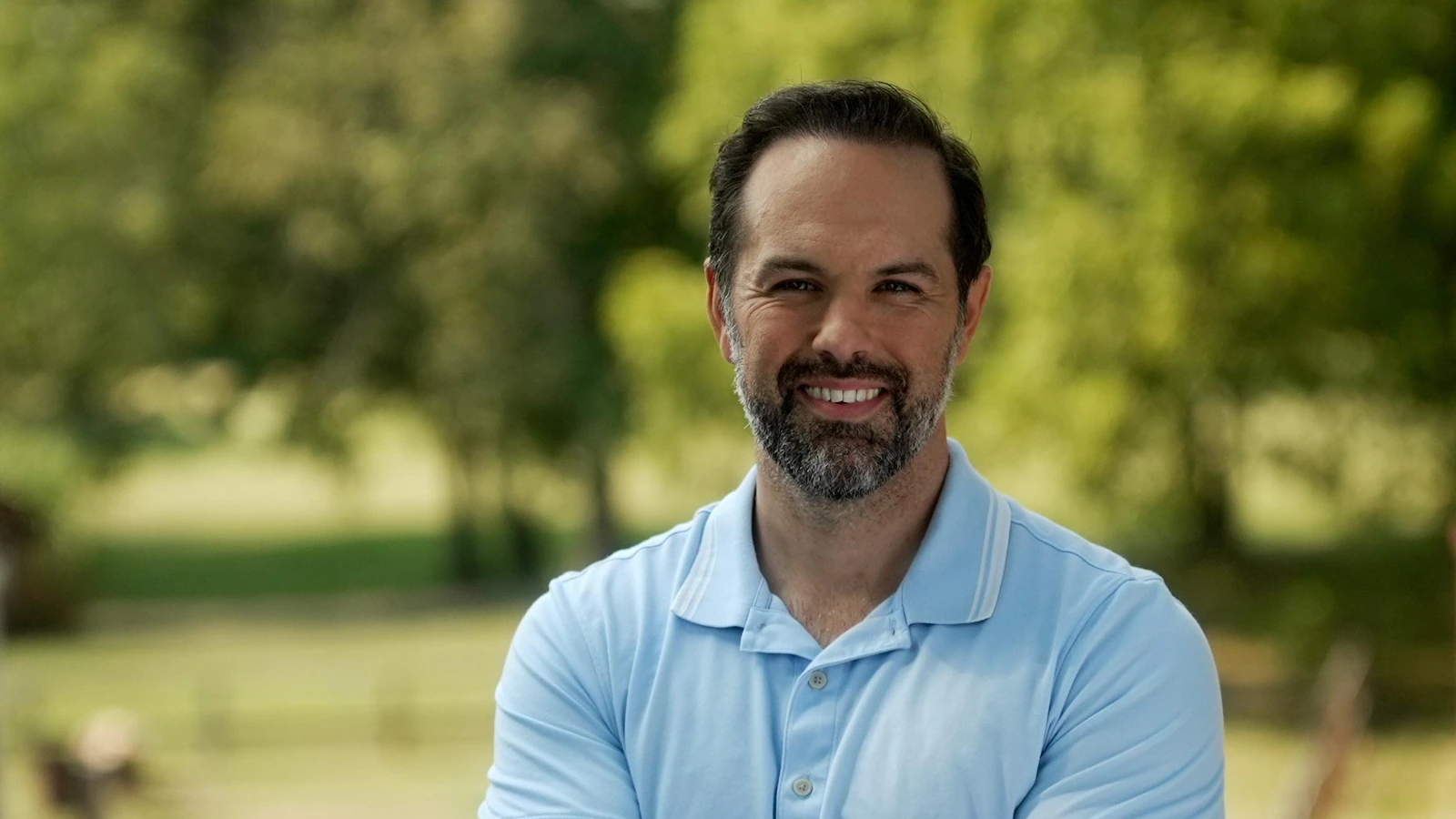
Amid efforts from the state government to keep the Connecticut Sun from relocating, Republican state representatives are asking for increased transparency about the possibility of the state purchasing a minority stake in the team.
Members of both the House and Senate held a press conference Thursday specifically to call out the proposed use of public money from the state’s multibillion-dollar pension fund to invest in the team. A report last week from WTNH stressed that though the use of pension funds is under discussion, no details or formal deal have been solidified.
Republican senators Stephen Harding, the minority leader, and Heather Somers also sent a letter to Governor Ned Lamont last week expressing concerns about the state’s potential investment, which Harding said Thursday has not yet received a response.
“We’ve had no conversation. We’ve only read about these proposals through press conferences, through brief media gaggles, and now through reporting,” House Republican Leader Vincent Candelora said. “What we do know is that the state is looking to leverage a treasured asset in the state of Connecticut, that being Connecticut’s pension fund. We think it is an unprecedented move. We think it deserves answers to our questions, and so we are calling on the governor to be transparent with what this proposal looks like and what has actually been submitted to the WNBA.”
CT lawmakers demand transparency after report officials consider pension funds to invest in CT Sun
The Sun sale has spent months in limbo after it was initially reported that the Mohegan Tribe agreed to sell the team to a Boston-based group for $325 million plus a $100 million commitment to build a dedicated practice facility. A bid from a group in Hartford has since matched the offer of $325 million with its own plans to construct a new downtown facility.
But the WNBA reportedly told the tribe its Board of Governors would not approve a relocation to either Boston or Hartford. ESPN reported that the WNBA made its own counteroffer in July to purchase the team for $250 million without charging a relocation fee, thus allowing the league to facilitate the sale and relocation to the city of its choice.
ESPN reported Sept. 4 that the state of Connecticut submitted an additional proposal, which would have the state enter into a limited partnership agreement with the tribe. The team would remain primarily at Mohegan Sun Arena with some games held at PeoplesBank Arena in Hartford. The proposal, which is also subject to league approval, would have the state build and finance a practice facility in Hartford for the team to lease.
“I have heard that the value in this team is to eventually move it out of the state, so is this going to be a short-term investment for the state of Connecticut?” Candelora said. “What I don’t want to see is … the state of Connecticut, outside of this investment, goes and builds a $100 million practice facility with bonding funds that then becomes vacant. We have enough vacant stadiums around the state of Connecticut, and I think we would be concerned that we’d be adding another one to the list. So as part of that investment there needs to be that conversation. Is the team committed to stay here?”
NBA commissioner Adam Silver defends WNBA in Connecticut Sun sale saga
State Republicans argued that purchasing a stake the Sun is either an issue of economic development or of state investment, and an economic development project should not utilize money from the pension fund. If the move is being considered a state investment, representatives expressed frustration that the state treasurer could unilaterally make the decision without input from the legislature or public.
“You have to ask the first question, is this for return on investment, or is this for economic development?” Candelora said. “If it’s for economic development, the pension fund is not appropriate. If it’s return on investment, we could have a conversation, but fundamentally the concern that we do have is that we don’t have a broader investment board that would take that decision out of politics and make the decision based on return on investment.”
The WNBA is experiencing a period of explosive growth league-wide, from skyrocketing attendance to a massive new media rights deal set to begin in 2026. The Sun sold out of season tickets this year for the first time in franchise history, and despite finishing with the worst record in more than a decade at 11-33, the team averaged its highest-ever annual attendance of 8,653 fans per game.
Other government officials including State Comptroller Sean Scanlon and Hartford Mayor Arunan Arulampalam have noted that having the Sun play some of their games in Hartford would help drive tourism to the city during an otherwise-quiet period in the summer.
“We would love for the team to stay. We would love for more teams to come to Connecticut,” Sen. Ryan Fazio said. “(But) we don’t know any of the details here, and it’s a multi-100 million dollar decision that we don’t know the details on. What we know is that that is not satisfactory. First of all, there needs to be transparency.”
It’s unclear whether the Governor’s office has even received the kind of financial information from the WNBA that state Republicans are seeking. Attorney General William Tong sent a letter to the league last week requesting information about the league’s operating and membership agreement with the Sun as well as its valuations of the team. The league did not respond to a request for comment on whether it has answered that inquiry or what conversations it has had with the state government.
“That’s part of our questions is what involvement does the WNBA have in all this?” Harding said. “My understanding, of which we have received little to no information other than drips and drabs from the press, is that the WNBA basically has a veto on this. So what is the likelihood that we may potentially put pension funds at risk or be involved in this, and the WNBA might turn around and say, ‘We’re not going to allow this’? So there’s a lot of questions.”



